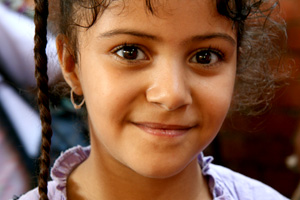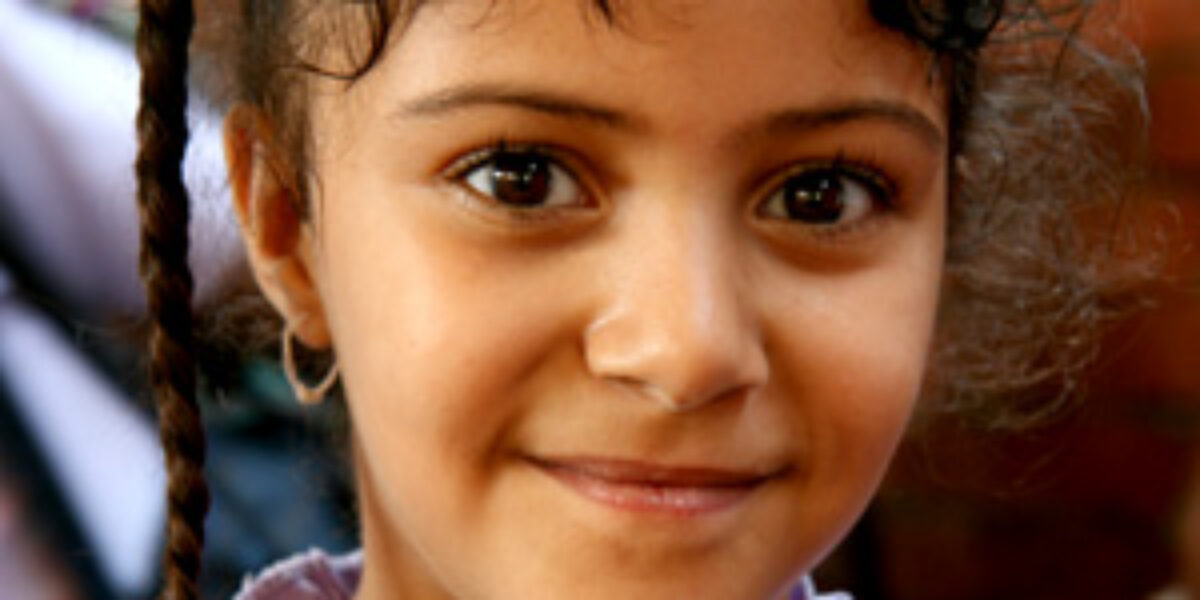
The Zabbaleen—or garbage collectors—of Mokattam live among trash, the stench of rotting refuse assaulting the nose. Sometimes, the waste piles two to three stories high. Other times, it keeps company with the residents, who number about 40,000. Pigs play in pens of thick, black mud, streets ooze with debris and goats live atop the roofs of houses.
On any given day, whole families are hard at work, sorting through one-third of Cairo's 10,000 tons of daily garbage, looking for treasure in another man's trash. Fathers lift and bag the garbage, mothers separate cans, and children sort through plastic, seeking reusable items.
It's a difficult life, particularly for children who dream of possibility, not unabated poverty. Is there any hope for the young people who live in the poorest neighborhood in Cairo?
The answer is yes, and all it takes is a stroll through Garbage City to St. Simon the Tanner Church, a 20,000-seat amphitheatre of the Coptic Orthodox Church. On this day, a Kingo Festival is about to begin, and the noise from 2,000 excited children nearly deafens the ears, yet heartens the spirit.
They await the appearance of Kingo, a friendly lion who tells stories of biblical characters and, in the process, shares Christian values with its audience. Drama, singing, puppetry, storytelling and an ultraviolet light show enthrall the children, many of whom have never seen anything like this before. All receive a Kingo flag (which they wave frantically throughout the event), a Scripture Portion and a video or a CD they can share with others. They also are invited to continue learning and growing in ongoing discipleship opportunities with local churches.
This live event, which started in 2005, had its origins in the Kingsley Meadows video series, starring a lion named Kingo. The series, originally produced by the American Bible Society, was adapted by the Bible Society of Egypt (BSE) so that younger children could understand Scriptures in an accessible way. When Kingo quickly became a bestseller, the BSE started to look for ways to build on this success. And so the live Kingo performances were born.

But Kingo Festivals are more than a day's entertainment. They are a way to impart the Gospel to children who are open to its life-changing message. As a result, many learn the Christian values of love, compassion and kindness.
One example is Martina, 10, who is in the sixth grade and enjoys learning languages, especially English and French. Having attended a Kingo Festival, she says she likes that Kingo 'is strong and perseveres.' Even more important, she says, Kingo encouraged her to help and serve others.
In particular, Martina was concerned about an orphan in her classroom. So she and her friends decided to anonymously give her gifts and other little surprises, such as a birthday party. Gestures like these go a long way in helping a lonely child feel loved and cared for. Even very young children are learning biblical values from Kingo. One mother, for instance, describes her 3-year-old daughter's response to an incident in a taxi cab.
“My daughter noticed that the taxi driver was losing his temper with other drivers,” she says. “She turned to me and said, ‘Mummy, he is acting like that because he has no self-control.' I would have found it impossible to teach her this concept if it had not been for the Kingo materials.”
Aside from teaching children biblical values, Kingo Festivals unite communities throughout Egypt. BSE plans to stage 70 shows throughout Egypt, some in local churches, some in Cairo's Garbage City, and still others in upper Egypt. BSE will work with churches and schools to host these events, which are expected to draw 100,000 children this year alone.





